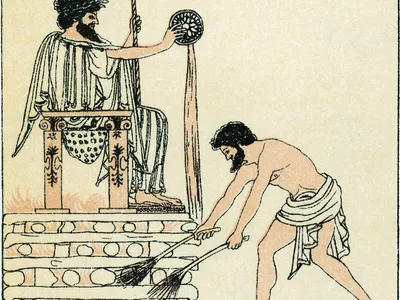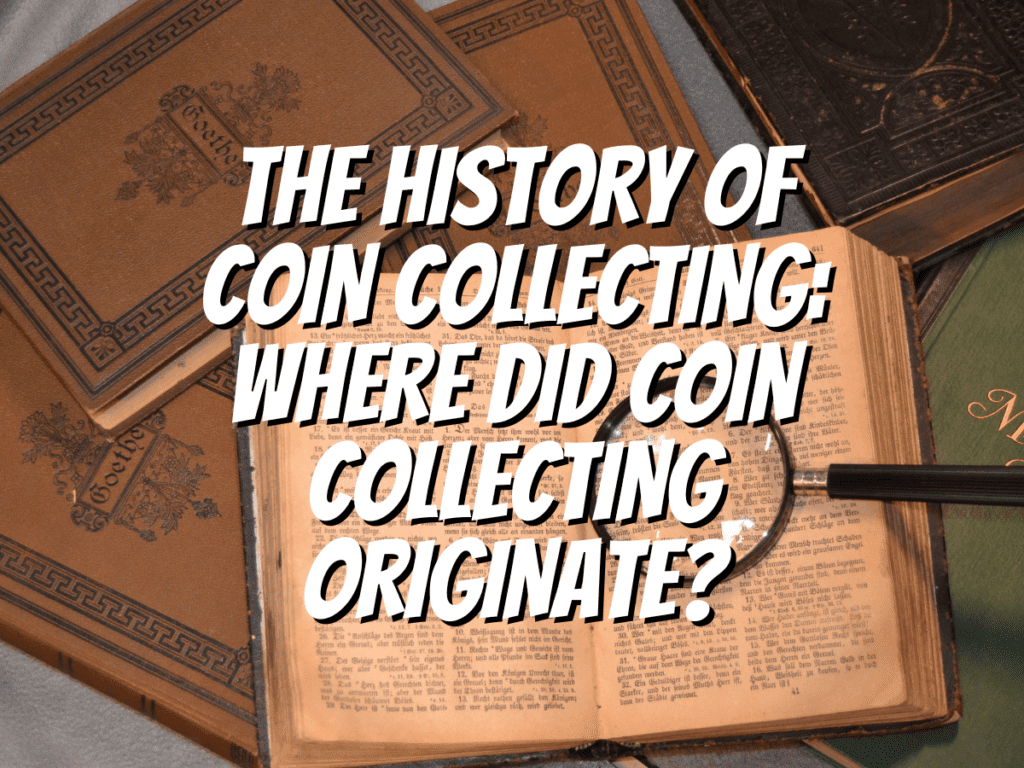Coin collecting is a hobby that dates back centuries, but it’s also evolved.
But where did coin collecting originate?
You may think of coin collecting as something you do at the bank, but it’s much more than that.
Learn how coin collecting became a popular pastime across time and space!
When Did Coin Collecting Start?

While the origins of coin collecting aren’t entirely clear, several theories exist.
The first recorded coin collection was by King Croesus of Lydia in 600 BC, though it’s likely that he wasn’t the first person who collected coins.
It’s also possible that other rulers had their collections before him, but historians didn’t document them.
Coin collectors may have started as merchants or traders who wanted to track how much each type of coin was worth and which ones were rarer than others (this information could help them when selling or buying goods).
They may also have been interested in comparing the different designs on each side—which side did you prefer? Which looked more impressive?
The Lydians created a way for people from different regions to trade directly with one another: gold-silver alloy coins called electrum (a mixture of 75% silver and 25% gold) instead of bartering with items like wheat or livestock.
This innovation led to increased trade between countries; thus, today’s global interconnectedness began today!
Where Did Coin Collecting Originate?
The history of coin collecting is a very long one.
It is thought to have originated in ancient Greece during the 5th century BC and, from there, spread throughout Europe and Asia.
While some scholars believe that the birth of coin collecting occurred much earlier, it wasn’t until around 450 BC that coins were used as currency across most of Europe.
During this time, it was common for people to collect ancient Greek coins as a hobby.
However, the collection grew into something more serious when wealthy men began collecting large amounts of them for investment purposes; this trend continued until the fall of Rome in 476 AD.
Coin collecting became popular during medieval times but again lost its popularity with collectors when paper money replaced metal coins later (in 1694).
Coin Collecting in Ancient Times

The concept of coin collecting can be traced back to the Lydians, an ancient civilization that inhabited present-day Turkey.
The Lydians were the first to mint coins, small metal disks used as money. The earliest coins were made from gold or silver and had holes in the middle so they could be worn around the neck or wrist.
These earliest coins were called staters and tetradrachms, respectively, which means “a piece with four sides” (stater) and “four drachms” (tetradrachm).
Coin Collecting in the Renaissance

During the Renaissance, coin collecting was a popular hobby among wealthy merchants and noblemen; that’s why it was coined the “Hobby of Kings.”
These collectors were interested in learning more about the history of coins and how they were made.
As you may know, many different coins have been used throughout history—some of which even pre-date the Renaissance era! But Renaissance coin collectors focused their attention on ancient Greek and Roman coins.
They also collected other types of currency (as well as medals) from European countries during this time.
Coin Collecting in Modern Times
Today, coin collecting is famous for all ages. Collectors use this to learn more about history, ancestry, and culture.
Since the birth of coin collecting, many people have become more attracted to collecting coins!
Even kids are having fun and learning simultaneously by collecting coins. Coin collecting can be enjoyable and exciting.
It’s a great way to learn more about the history of money and other cultures around the world.
While you might think that coin collecting is just for people interested in economics, it’s something anyone can enjoy!
Before you go…
So, there you have it. The history of coin collecting is a long and fascinating journey that has taken us through many different periods of human history. From the ancient world to today’s modern era, coin collectors have always been drawn to coins because they are an essential part of our shared history and culture!
Check out my next article: “The History of Numismatics.”
Related Articles:

